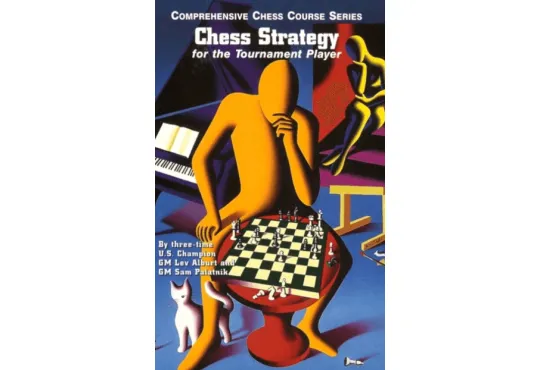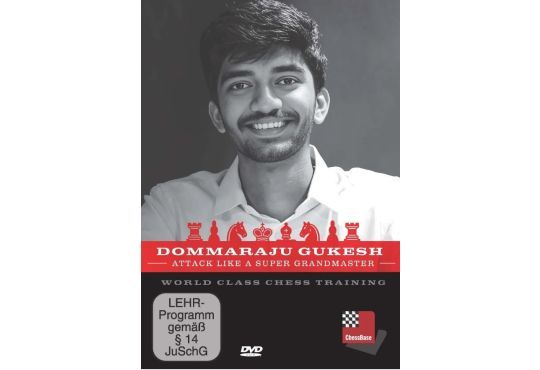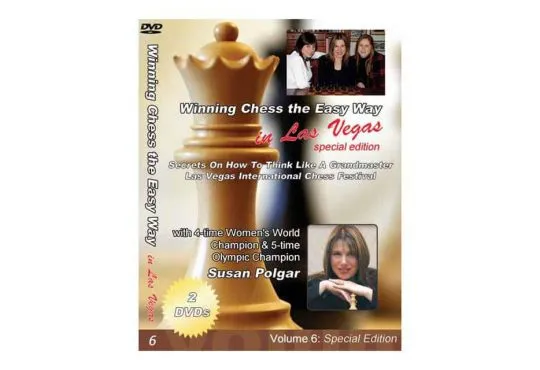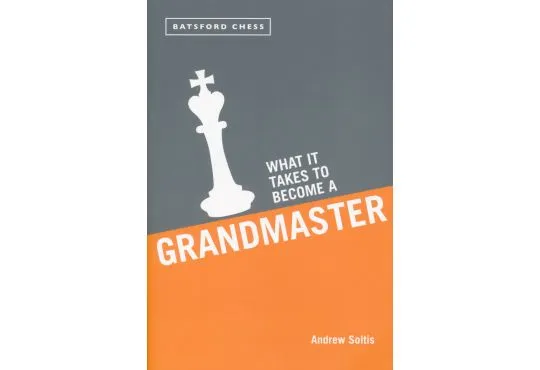Chess Grandmaster: Do You Have What It Takes?
You’ve been playing chess for a while, you win more than you lose, and you’ve realized studying chess is not as hard as you thought. There’s a good chance you’ve wondered what it really takes to become a grandmaster.
Grandmaster (GM) is the highest title a chess player can have. A Super Grandmaster is a more recent unofficial title that people use to talk about the very best players in the world (rated over 2700).
A Grandmaster title is awarded by the international chess federation (FIDE) to high ranking chess players and has a few simple technical requirements. So, is it really that hard to become a GM?
The answer is a resounding yes. Let’s take a look at how to become a grandmaster, so you can ask yourself: do I have what it takes?

What it Takes to Become a Chess Grandmaster
First and foremost, becoming a grandmaster requires an incredible level of proficiency in the game of chess. The technical requirements, which we will look at in a moment, are relatively simple. However, to achieve them you need to consistently defeat incredibly talented chess players and undergo the rigors of tournament play.
Becoming a Grandmaster often takes years of study and dedication as well as managing the costs of attending tournaments. While professional chess players will have a natural aptitude for the game, they must also develop their abilities through years of training and study.
GMs must not only deeply understand chess theory but also develop the psychological strength and adaptability necessary to play in high-pressure situations.
-
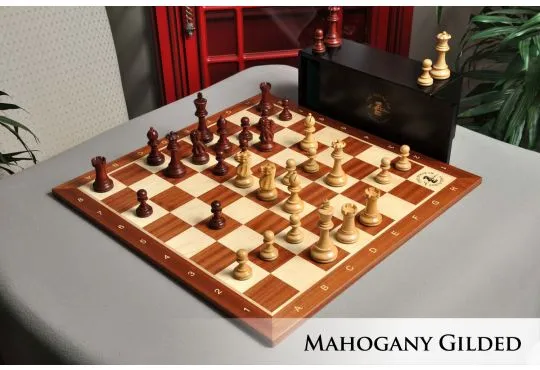 Free Worldwide Shipping
The Grandmaster Chess Set, Box, & Board Combination Enjoy Savings of 24% Off MSRP When Purchased as a Combination
Free Worldwide Shipping
The Grandmaster Chess Set, Box, & Board Combination Enjoy Savings of 24% Off MSRP When Purchased as a Combination$327.95
Starting at $249.00
To $328.95
Like many athletes, potential grandmasters are often identified early on. The youngest grandmaster today, as of 2024, is 12 years old. While incredibly gifted, these chess prodigies still have to develop their abilities and study chess thoroughly to obtain titles and compete at the highest level.
In short, setting out to become a grandmaster as an adult with little background in chess is a serious feat.
Further reading: What it takes to Become a Grandmaster
Technical Requirements
Chess Grandmaster is a title awarded by FIDE upon meeting several requirements. The two most significant are your chess rating and tournament norms.
1. Chess Rating
To become a GM, you must have a FIDE rating of above 2500. FIDE ratings are calculated using the ELO system (link) and are calculated based on your performance in official tournaments.
Reaching this rating will involve playing in numerous high-level tournaments and beating other high-ranking players.
2. Tournament Norms
A chess grandmaster must meet the requirements, or norms, laid out by FIDE. The list includes:
- Playing at least 9 games in a given tournament
- At least half of the opponents must be titled players
- At least one-third of opponents must be grandmasters
- A player must have a performance rating of 2600 (a performance rating is calculated based on your wins, draws, and losses against the ratings of your opponents)
- You must face opponents from other national federations than your own
The FIDE Handbook lays out these norms in more detail, but the above are the basic requirements. The upshot is that to become a grandmaster you need to be a consistently high-ranking player and to perform exceptionally well in a FIDE tournament.
-
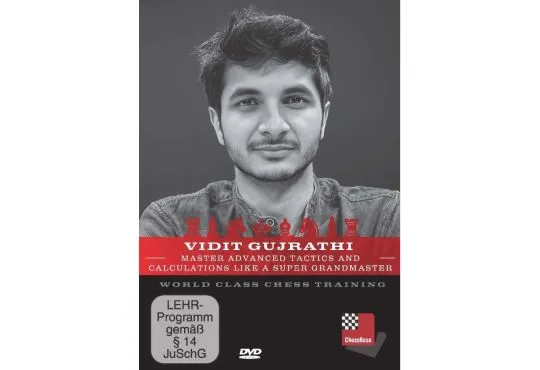 DOWNLOAD - Vidit Gujrathi: Master Advanced Tactics and Calculations like a Super Grandmaster World Class Chess Training$43.95
DOWNLOAD - Vidit Gujrathi: Master Advanced Tactics and Calculations like a Super Grandmaster World Class Chess Training$43.95 -
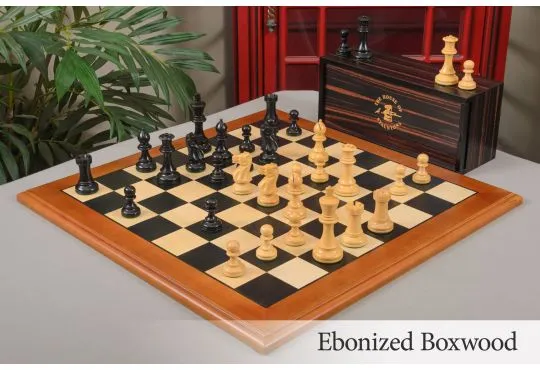 Free Worldwide Shipping
The Superior Grandmaster Chess Set, Box, & Board Combination Enjoy Savings of 24% Off MSRP When Purchased as a Combination
Free Worldwide Shipping
The Superior Grandmaster Chess Set, Box, & Board Combination Enjoy Savings of 24% Off MSRP When Purchased as a Combination$457.00
Starting at $349.00
To $428.95
-
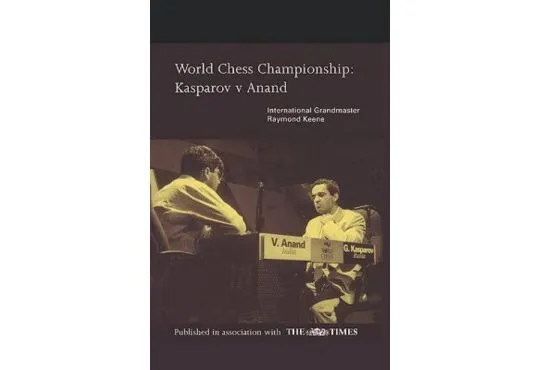 World Chess Championship - Kasparov vs. Anand Published in Association with the Times Newspaper$25.95
World Chess Championship - Kasparov vs. Anand Published in Association with the Times Newspaper$25.95
How to Train Like a GM
Grandmasters throughout history have adopted unique training regimens to optimize their performance.
World Champion Garry Kasparov believed stamina was key to a chess player’s performance and underwent physical training to keep his energy high during matches.
Other top players have practiced blindfolded or played numerous games simultaneously.
Let’s take a look at how GMs typically train to see whether you think you’re up to the task.

Chess Coaches
Grandmasters, especially when young or preparing for a tournament, will often employ the services of a chess coach. This is not always the case. Bobby Fischer, for example, was famously solitary in his comprehensive theoretical study.
What is the role of a coach? Often GMs themselves, chess coaches will assist with analyzing games, enforcing training regimens, and providing materials. For many players, the structure and insight offered by a coach is an invaluable asset in their development.
Studying Chess
What does it actually mean to study chess theory?
Chess is a game that has been around for centuries and the amount of books written about it is immense. The goal of chess study is to understand the principles and concepts of chess in each stage of the game and to prepare for specific lines. This means studying opening, middlegame, and endgame theory, and looking in-depth at past games. The possibilities that develop in a game of chess are mathematically immense, so it is impossible to prepare for every position.
That said, grandmasters will know openings by heart often as far as 15 or 30 moves into the game. They will not simply memorize the moves, but understand the function of each one. From then on they will calculate the best moves in the position and recognize the key principles at work in the game.
Further reading: 7 Famous Chess Games You Should Commit To Memory
Puzzles and Calculation Exercises
Knowing the theory is a large part of chess study, but perhaps more important are the fundamental skills required to identify the best move in a position, spot tactics, and convert tricky endgames.
This is where puzzles come in. One of the resources available in chess books is innumerable puzzles, in which you have to identify the best move or series of moves. The most challenging puzzles are a regular part of grandmaster training because they require the ability to calculate and analyze a given position on the board.
-
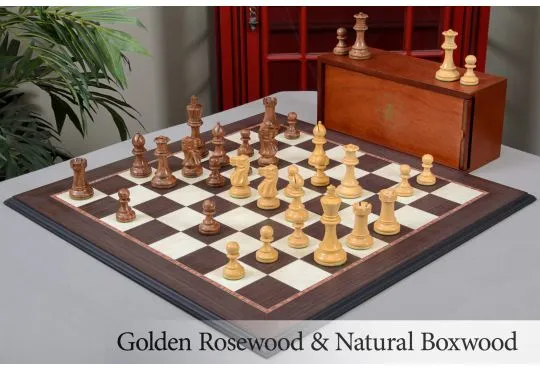 Free Worldwide Shipping
The Ultimate Grandmaster Series Wood Chess Set, Box, & Board Combination Enjoy Savings of 27% Off MSRP When Purchased as a Combination
Free Worldwide Shipping
The Ultimate Grandmaster Series Wood Chess Set, Box, & Board Combination Enjoy Savings of 27% Off MSRP When Purchased as a Combination$427.95
Starting at $312.00
To $391.95
Chess coaches are experts at finding puzzles and exercises that strengthen a player's vision on the board and ability to calculate complex positions.

Further reading: 1001 Chess Exercises for Advanced Club Players by Frank Erwich
Match and Tournament Preparation
Preparing for specific matches and tournaments is a key part of training like a grandmaster. Often you will be aware of your opponents ahead. This means you have the opportunity to prepare against their favorite openings and try to find ways to surprise them on the board.
More generally, you will have to prepare your own repertoire of openings and ensure you are psychologically and physically ready for the tournament.
-
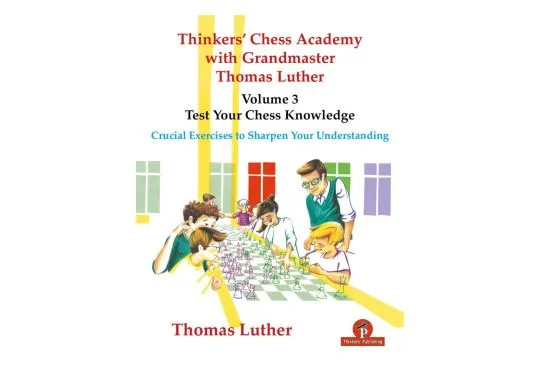 Thinkers' Chess Academy with Grandmaster Thomas Luther - Volume 3 Test your chess knowledge - Crucial exercises to sharpen your understanding.$42.95
Thinkers' Chess Academy with Grandmaster Thomas Luther - Volume 3 Test your chess knowledge - Crucial exercises to sharpen your understanding.$42.95 -
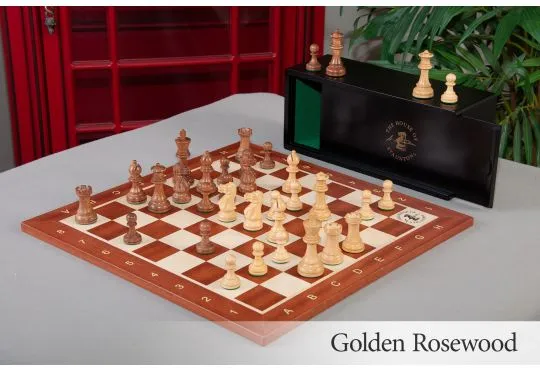 Free Worldwide Shipping
The Library Grandmaster Chess Set, Box, & Board Combination Enjoy Savings of 18% Off MSRP When Purchased as a Combination
Free Worldwide Shipping
The Library Grandmaster Chess Set, Box, & Board Combination Enjoy Savings of 18% Off MSRP When Purchased as a Combination$277.95
Starting at $229.00
To $303.95
Conclusion: Can You Really Become a Grandmaster?
Short answer: anything is possible.
There are roughly two thousand grandmasters in the world and millions of chess players. Most grandmasters have been studying and playing chess competitively since childhood.
A small minority of grandmasters started playing chess as adults. A notable example is Mikhail Chigorin, who only began taking chess seriously at the age of 24 and became one of the top players in the late 19th century.
Depending on your circumstances, the odds are likely stacked against you. Before deciding to become a grandmaster, it is worth asking yourself some serious questions.
Of course, only you know whether you have what it takes to reach the very highest level in chess.
Puzzle Solution
The puzzle is solved with Qf7. With the following best moves for black, white still finds checkmate:
1. Qf7 Kh6 2. Kg4 Rh2 3. Rxf6 gxf6 4. Qxf6#
This puzzle is so tricky because white has to ignore several seemingly good ideas to find the absolute best move.
Frequently Asked Questions
Grandmaster is the highest official titled awarded to chess players by FIDE.
The title is awarded to players with a FIDE rating over 2500, if they also reach a series of norms or requirements during an official tournament.
While rare, it is possible to start playing chess as an adult and still become a grandmaster. However, it requires aptitude and years of skill and dedication.
High level chess players study chess theory and practice calculation using puzzles and exercises. They also often employ the use of a chess coach or trainer.


